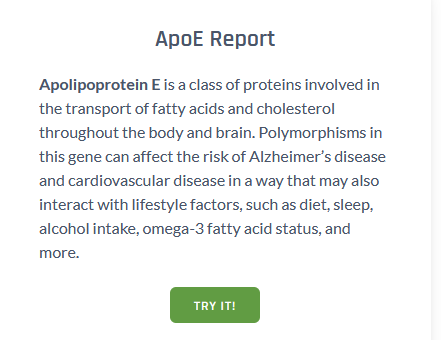An analysis of 21 studies found exercise reduced dementia risk by 28% overall, and 45% for Alzheimer’s disease specifically.
“however, the dose-response association remains unclear.”
Oddly, farmers (agricultural workers) who you would think get more exercise than the average city dweller have a higher incidence of dementia and Alzheimer’s disease.
Maybe because they have more exposure to pesticides etc?
“The cohort study found longest-held jobs in agriculture, fishing, and forestry were associated with 46% higher odds of dementia compared to other occupations. The relationship was stronger in younger and retired adults as well as those with longer tenure in these fields.”
2 Likes
Or perhaps it’s related to lower screening rates?
It’s almost certainly pesticide exposure. Also when you get into the weeds heavy exercise makes a lot bigger difference than 45% — there’s noise in the data from studies that relied on surveys and questionnaires. Those actually measuring fitness level empirically had much starker conclusions.
2 Likes
Ah - I like this. I’d rather not give all my DNA / SNP data to 23 and Me.
Price is only $99. I will do this:
2 Likes
I’ll let others do their pubmed searches - BUT in addition to Rapamycin, I’d recommend people look at SGLT2-i, PDE5-i, GLP-1/GIP drugs, and yes a lot of the items I’ve seen other’s list below. Optimization of vascular risk, vitamin B12/Omega 3/Vitamin D/Diet/Exercise is all important.
I’d say the evidence is mounting for the items just mentioned. Lifestyle is clearly a critical partner.
8 Likes
Memory self-test via smartphone shows promise in early detection of Alzheimer’s disease
Full Open Access Paper:
https://www.nature.com/articles/s41746-024-00999-9
Company website:
3 Likes
Do you know where we can check if we have this variant assuming we can download our raw data from 23&me and such?
Would love to check for me, my husband, and my daughters who are all apoe3/4.
Random aside but I’m currently in the Dominican Republic on vacation — was typing my bullet point list while on the plane. So it’s completely mysterious but my mind is working 10x better here: I’m able to multitask more, keep track of an evolving todo list and even nag my husband about unfinished business we left behind at home which I can’t even think of clearly when we’re there. And no word retrieval latency since we touched down. I don’t know if it’s the weather, sun exposure, great food and rest, but I’m relieved to find out that whatever is happening to me at home in my cold ass New England state does not mean I’m actually cognitively impaired or that my apoE4 chickens have come home to roost…just yet.
3 Likes
I’m guessing it’s the sun, weather and temperature.
1 Like
I’m no doc., but many of your symptoms may relate to depression.
I decided long- long ago that 9 months of winter was something I didn’t like.
That’s why I moved to the sunny far Southwest. Only about 3 months of the year are too hot, but I have adapted to it. I could never adapt to 9 months of winter.
So, you are experiencing excitement and sunny skies both anti-depressants.
Depression rates by state.
8 Likes
Why is Oregon so depressed? Seems like a nice place to live.
Taking a Boswellia supplement gives me wicked insomnia that lasts all night long and all day long the next day even when taken in the morning.
I’m in a very dark blue place where I’ll likely stay for at least the next 10 years for the kids’ sake and as a native of the Mediterranean I really hate it most of the time climate wise. I just don’t perform at my best — whenever I visit my native country in the summer I become a super version of myself. But my mood is not depressed really at all so maybe it’s sub clinical. I did go to university in Canada and experienced true seasonal depressive disorder there. It was as subtle as a sledgehammer. My husband is a northerner in both ancestry and upbringing and seems to deflate in the upper ranges of sun and humidity that I find optimal — even though the Mediterranean hits a sweet spot for us both. Right now he’s in his native milieu and I’m just coping.
It’s true that since I moved to New England I’ve been far from at my best but I moved from NYC where the climate is not THAT much better but where I functioned at my highest for years before kids.
1 Like
It doesn’t seem to be in the 23 and Me data. Some people in this APOE4 forum are saying you need a whole genome done, or some new version of 23 & me. I’m not sure how accurate this is.
“Two mutations (rs116558455 and rs140926439) in the FN1 gene (Fibronectin-1) were found in healthy elderly ε4 homozygous carriers in EFIGA/WHICAP and NIA AD-FBS cohorts with MAF=1.85% and 3.33%, respectively…”
See this thread: New Study. FN1 modifiers and APOE4 - ApoE4.Info
3 Likes
Found My Fitness by Rhonda Patrick offers a program where members can download the raw data from 23andme for free. Promertheus is a good option for $12.
Rhonda is very interested in Alzheimer’s disease because of her family history and her having one APOE-4 allele (she often talks about it during her presentations). There is a lot of mentioning of research, even recommendations on supplements pertaining to different SNPs besides APOE-4 in her program.
VERY INTERESTING!
3 Likes
A_User
#63
Here is the link, scroll down and press “try it” for ApoE Report.

3 Likes
23andme reports include APOE status. See PDF below.
I have an archived report that explicitly says ‘e3/e4’, but I don’t see e3 called out now, just tells you whether you have e4 or not.
Leonard Glassner Late-Onset Alzheimer’s Disease Report - 23andMe.pdf (221.2 KB)
3 Likes
Tim
#65
@medaura and @desertshores
And then there’s post-partum depression and worse, not to mention severe sleep deprivation.